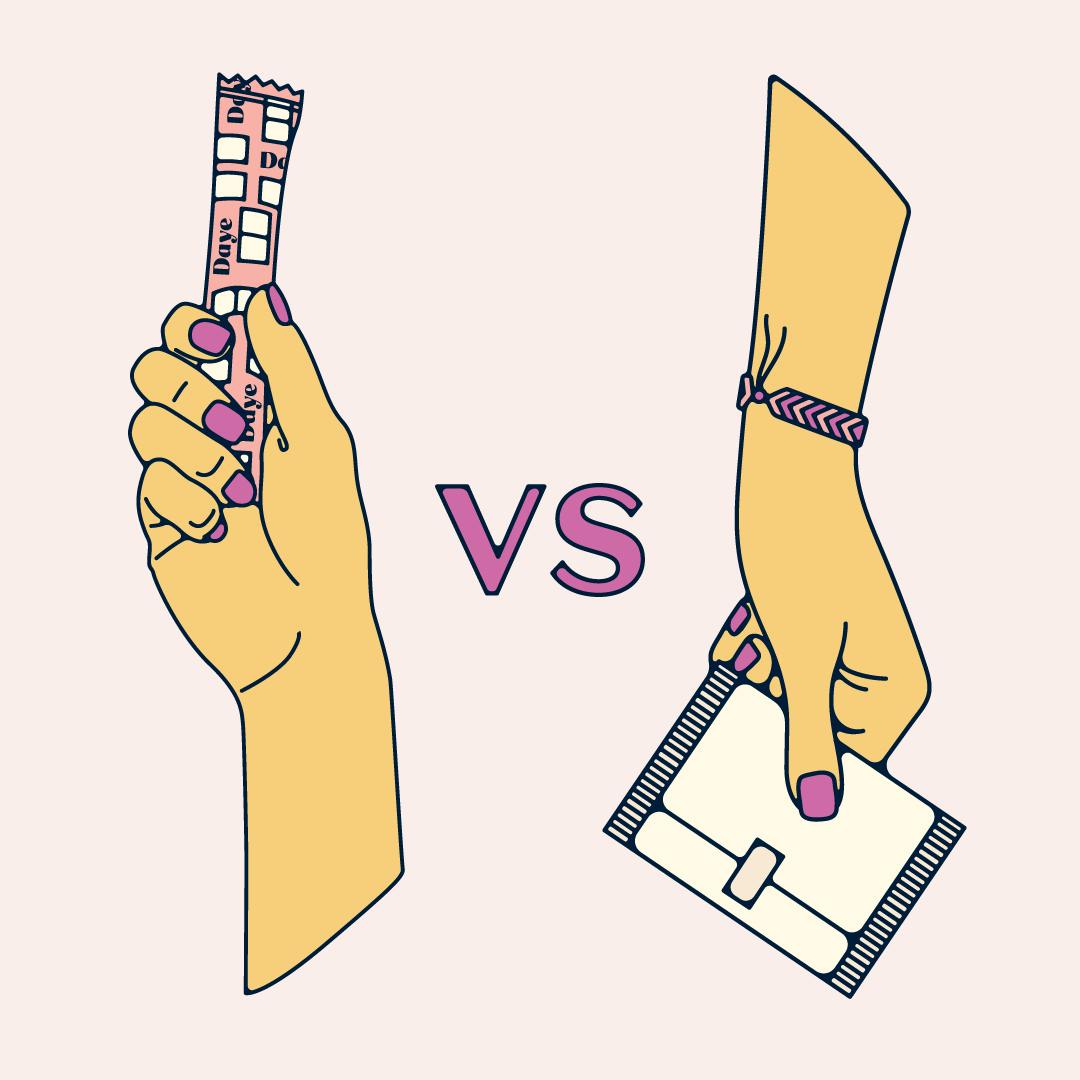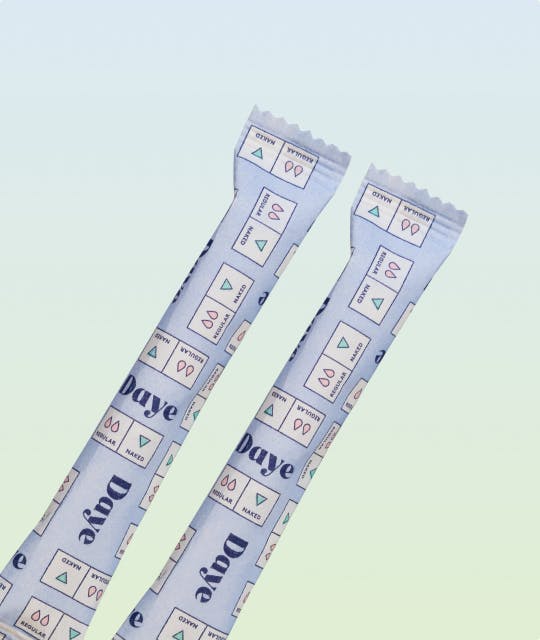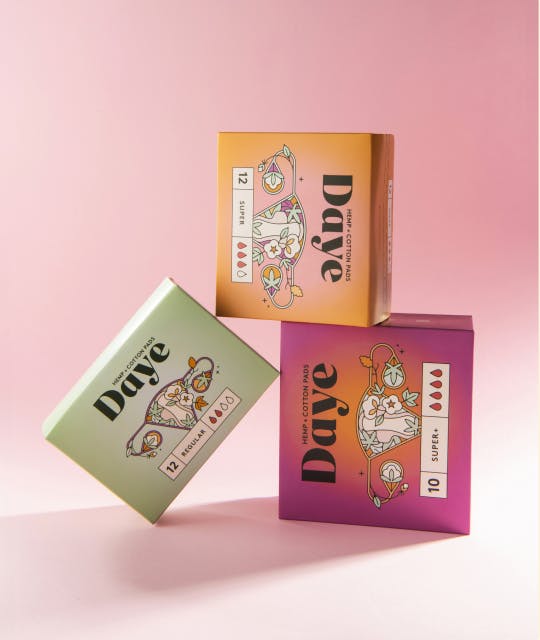Table of contents
Written by Valentina Milanova
Medically reviewed by Sarah Montagu (RN DFSRH, BSc)
Illustrated by Sabrina Bezerra Erin Rommel
Let’s be honest, managing all the phases of your menstrual cycle is confusing enough, and with so many menstrual products on the market it can be difficult to understand which is best for you and your cycle.
Surpassing the menstrual cup, pads and tampons are among some of the most popular menstrual products on the market today, providing excellent protection from issues like leakage and spotting.
However, when it comes to choosing between both, each option has its own set of benefits and drawbacks, making the decision on which to use a matter of personal preference and lifestyle.
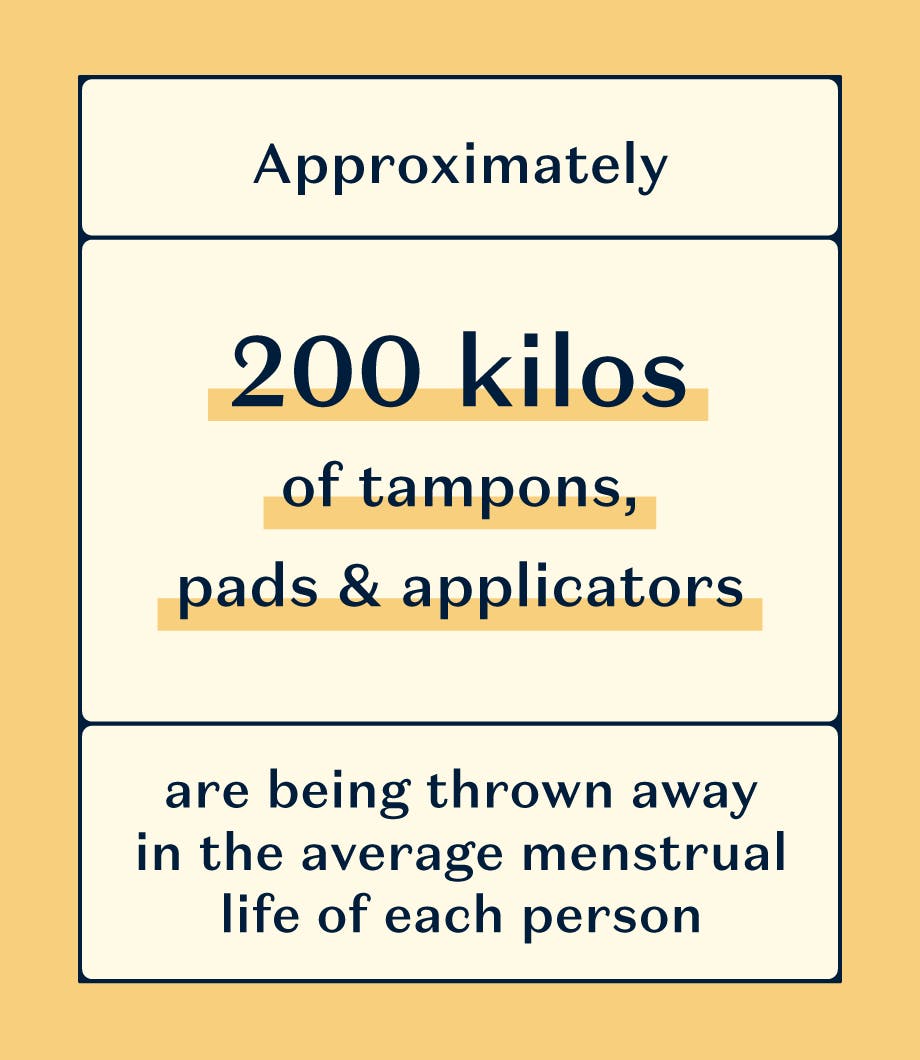
Comfort and convenience
One of the biggest benefits of menstrual pads is that they can be easily stuck in place on the underwear to soak up period blood as and when it comes. The absorbent material they are made of comes in a variety of sizes and thicknesses, catering to different menstrual flow levels and offering extra coverage for added peace of mind, especially when it comes to overnight use.
On the other hand, tampons offer a more discreet and internal solution. They are inserted into the vagina to absorb menstrual blood directly, offering the user a sense of freedom during physical activities like sports and exercise. Unlike pads, tampons soak up your menstrual fluid internally, which means you won’t get an uncomfortable wet feeling in your underwear. Much like pads, tampons are available in a variety of absorbency levels, allowing you to choose one that matches your blood flow best.
Environmental impact
Sustainability has become an important considerationfor many of us today, and for good reason. According to recent studies, approximately4.3 billion menstrual products are used in the UK each year. Given the average number of menstrual products used per period, this works out to approximately 200 kilos of tampons, pads and applicators being thrown away in the average menstrual life of each person.
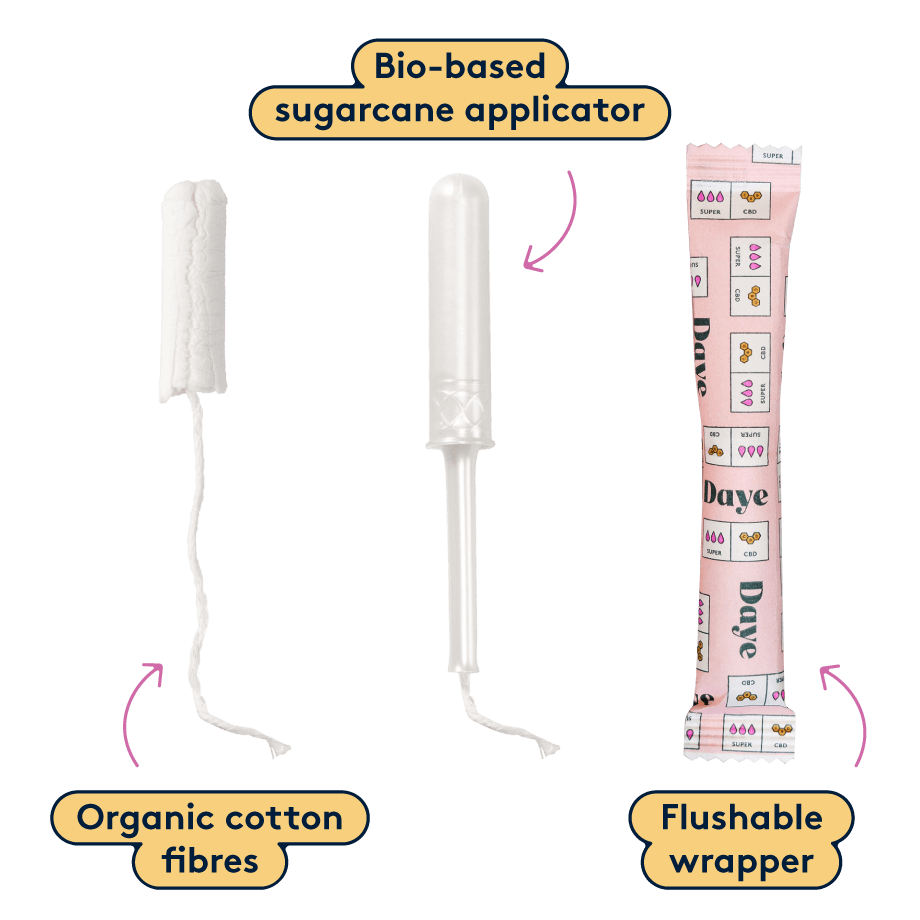
This makes the issue of sustainability even more important, especially as over 90% of the menstrual health products on the market today are made of petrol-derrived, single-use plastics – resulting in a fair amount of waste, which can take hundreds of years to decompose.
When comparing pads and tampons, their impact on the environment differs. Most pads are made from a combination of plastics and other non-recyclable, synthetic materials, which can take a long time to decompose in landfills or can end up in our oceans and on our beaches. While eco-friendly alternatives like reusable cloth pads, or our organic bamboo menstrual pads, are designed from biodegradable materials, the majority of mainstream pads still contribute to environmental pollution.
Tampons, too, have an impact on the environment. You might think that most tampons are made of cotton fibres, but in reality, mainstream tampons are often made with plastic fibres and come with plastic applicators and wrappers, adding to the growing waste problem. However, there are eco-conscious options on the market. Take Daye's organic tampons, for instance, a fully sustainable alternative, made of compostable, organic cotton fibres, housed in a bio-based sugarcane applicator that is accompanied by our flushable, ocean-safe wrappers.
Health risks
Let's talk about the known health risks of tampons and pads. You might have heard about the risk of Toxic Shock Syndrome (TSS) associated with the use of tampons, pads, period cups and period pants. A rare, but serious, bacterial infection, TSS can occur as a result of anything being inserted into the vagina or having contact with the vaginal entrance.
According to previous studies, the risk of developing TSS washigher in young women who used tampons than in women who used menstrual pads.
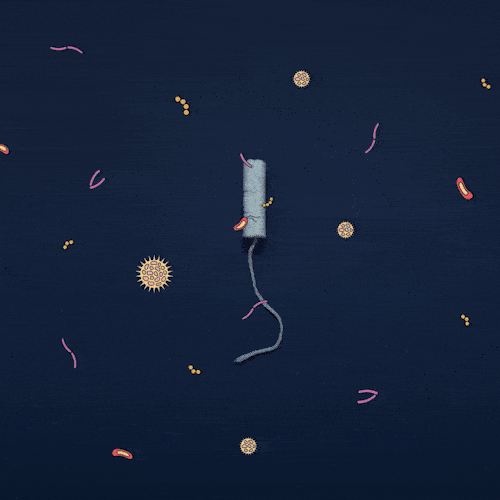
The actual risk of developing Toxic Shock Syndrome from using tampons is extremely low. Despite this, however, our team at Daye are aware of the anxiety this can bring to people who wish to use menstrual products, whilst also protecting their vaginal health. This is why we sanitise all of our tampons to prevent the bacteria that causes TSS from entering your vaginal canal. Our tampons also come with a proprietary protective sleeve, which prevents little pieces of your tampon from staying behind in your vaginal canal. When fibres shed from your tampon, they can build up over time and increase your risk of TSS and vaginalinfections like Thrush and Bacterial Vaginosis (BV)
For those who prefer pads, irritation or discomfort can arise from the materials used in traditional pad brands The heat and moisture which emanate from the pad can cause some individuals to experience chafing or redness, particularly for those with sensitive skin. For this reason, it is always a good idea to opt for hypoallergenic and organic skin-friendly pad options to mitigate any potential irritation and ensure a comfortable experience.
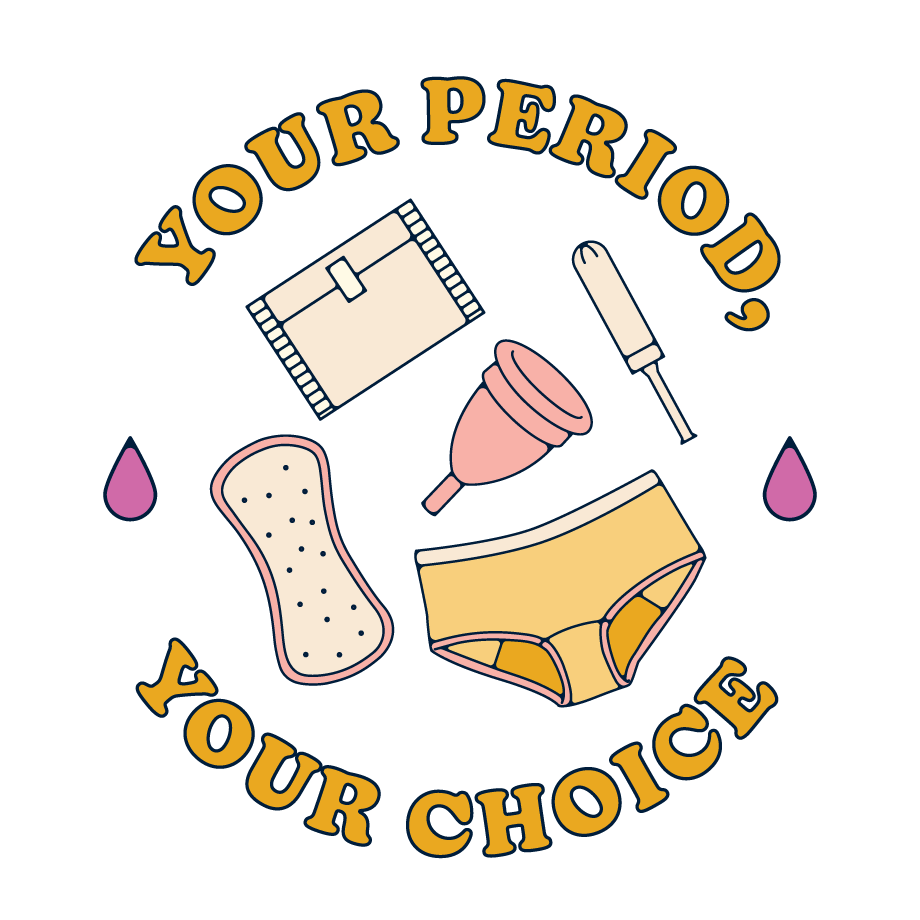
Your body, your choice
Whatever period product you choose to use, it is important to remember that the decision should always be yours, and yours alone.
Both tampons and pads have their own unique merits and drawbacks, so there is no definitive "better" choice. This means you are free to decide which one you like best, based on your unique flow, body, and lifestyle.
Here at Daye, your comfort is our top priority, and we offer an extensive range of period products, all designed to keep you at ease when that time of the month comes around. We have even launched a world-first virtual period pain clinic, designed to provide a safe and easy way to address any queries regarding your period in real time.
Relevant products



